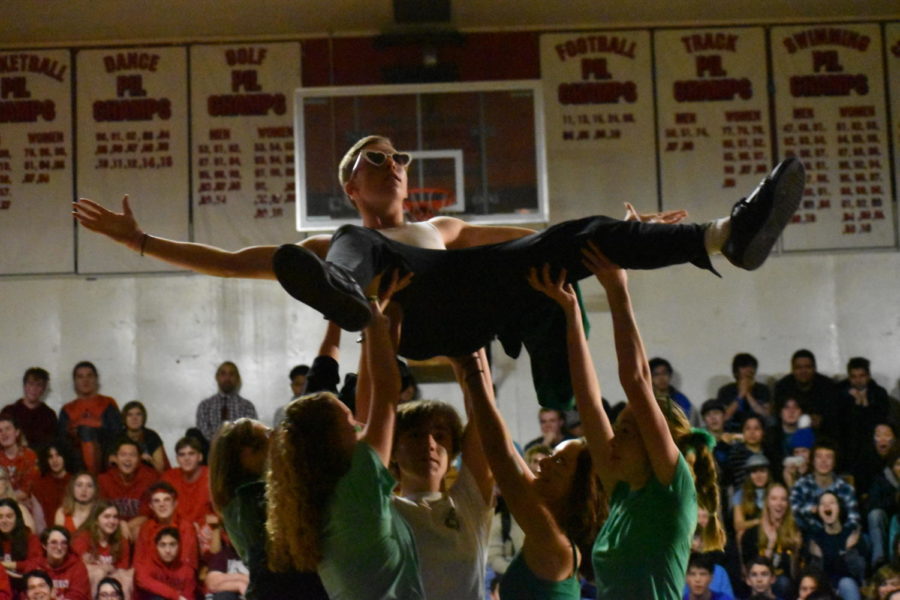Homecoming date change breaks tradition
Sophomore Rowan Schnebly performs as Freddy Mercury during the Homecoming Assembly. The assembly kicks off one of the most anticipated days of the year and is typically followed by the Homecoming game and dance.
For years, Spirit Week ended with the traditional homecoming football game and was followed by a fun, excitement-filled homecoming dance. This year, however, that tradition came to an end.
Homecoming is a yearly tradition in high schools around the United States, dating back to the 19th century. Traditionally, high school homecoming has been held on Fridays, the night of a home football game, causing an electric atmosphere at games.
“[Homecoming] is the biggest performance of the year, as it’s the only field show of the year,” senior band member Teaguen Miller says. This year, though, the homecoming football game was on Friday, and the dance was moved to Saturday.
Miller, a section leader, favors the date change. He believes that, both this year and in future years, the change will create a less stressful environment without the added pressure of both the game and the dance being on the same night.
Lincoln is not the only school that changed homecoming dates. Wilson had their dance the day after the homecoming football game too.
“[The move]…make[s] the dance more accessible to dancers, football players, and people in the band who aren’t able to fully participate because of their game,” says Lisa Klein-Wolf, Lincoln’s Activities Director.
One of the concerns that was brought up was the effect the dance being moved would have on student participation. With the events being split into two different days, it could have resulted in a decline in attendance for both the game and the dance.
Prior to the dance, senior Marko Vidackovic shared this concern.
“More people would attend the game and then go to the dance. With the game and dance being on different days less people could come,” Vidackovic says.
While this concern was a serious one, proponents of the date change knew that students would attend both. Klein-Wolf said she hoped that Lincoln students would still participate, and that students who would be setting up for the dance during the game on Friday would be able to participate in going to the football game.
Students and staff are divided on the changes made to homecoming. Only time will tell whether the right decision was made.















